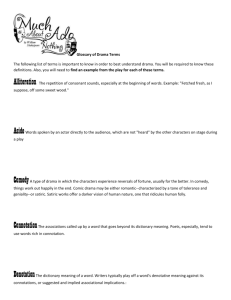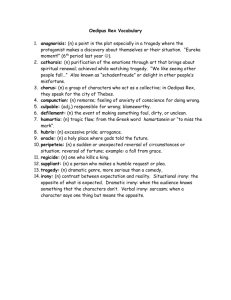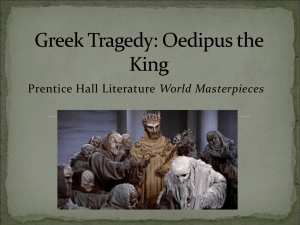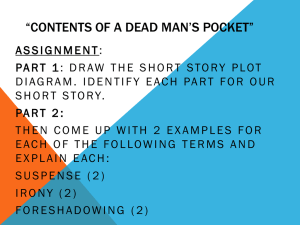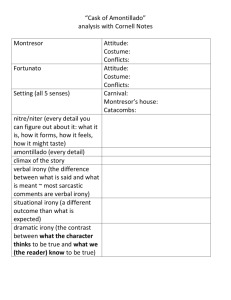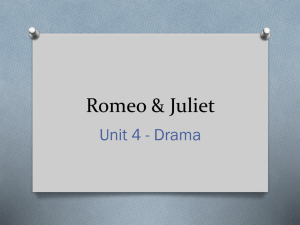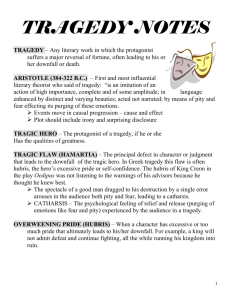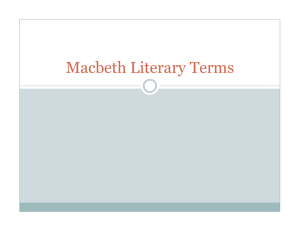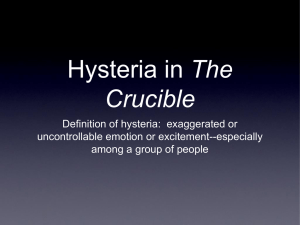Romeo And Juliet - Gorton High School
advertisement
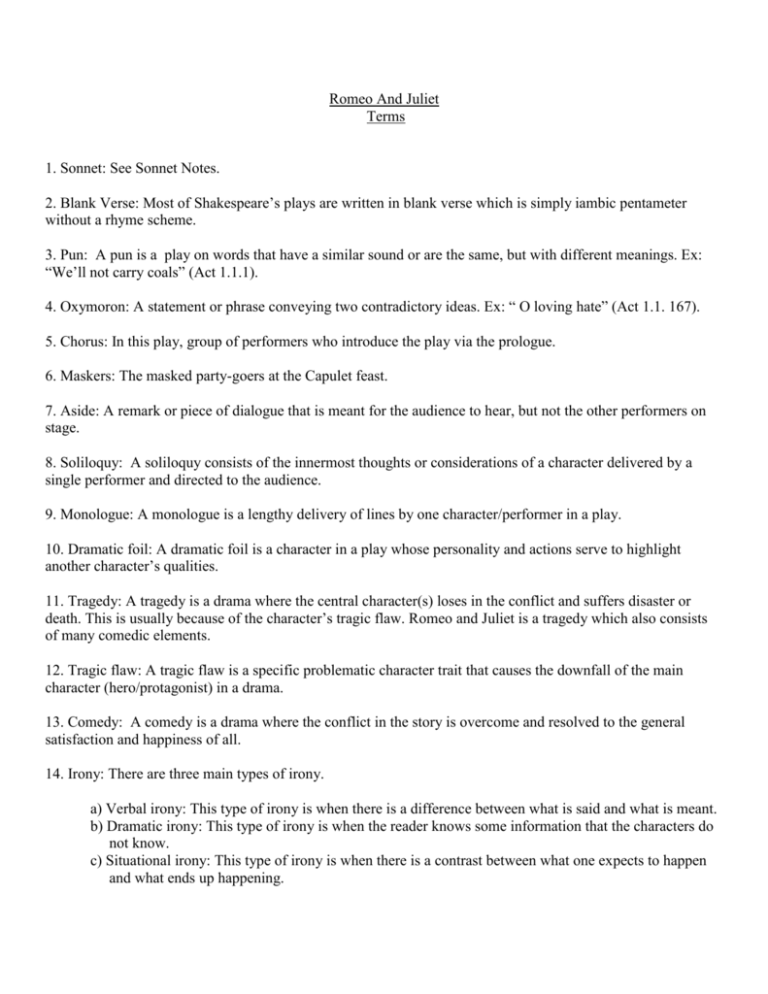
Romeo And Juliet Terms 1. Sonnet: See Sonnet Notes. 2. Blank Verse: Most of Shakespeare’s plays are written in blank verse which is simply iambic pentameter without a rhyme scheme. 3. Pun: A pun is a play on words that have a similar sound or are the same, but with different meanings. Ex: “We’ll not carry coals” (Act 1.1.1). 4. Oxymoron: A statement or phrase conveying two contradictory ideas. Ex: “ O loving hate” (Act 1.1. 167). 5. Chorus: In this play, group of performers who introduce the play via the prologue. 6. Maskers: The masked party-goers at the Capulet feast. 7. Aside: A remark or piece of dialogue that is meant for the audience to hear, but not the other performers on stage. 8. Soliloquy: A soliloquy consists of the innermost thoughts or considerations of a character delivered by a single performer and directed to the audience. 9. Monologue: A monologue is a lengthy delivery of lines by one character/performer in a play. 10. Dramatic foil: A dramatic foil is a character in a play whose personality and actions serve to highlight another character’s qualities. 11. Tragedy: A tragedy is a drama where the central character(s) loses in the conflict and suffers disaster or death. This is usually because of the character’s tragic flaw. Romeo and Juliet is a tragedy which also consists of many comedic elements. 12. Tragic flaw: A tragic flaw is a specific problematic character trait that causes the downfall of the main character (hero/protagonist) in a drama. 13. Comedy: A comedy is a drama where the conflict in the story is overcome and resolved to the general satisfaction and happiness of all. 14. Irony: There are three main types of irony. a) Verbal irony: This type of irony is when there is a difference between what is said and what is meant. b) Dramatic irony: This type of irony is when the reader knows some information that the characters do not know. c) Situational irony: This type of irony is when there is a contrast between what one expects to happen and what ends up happening.
